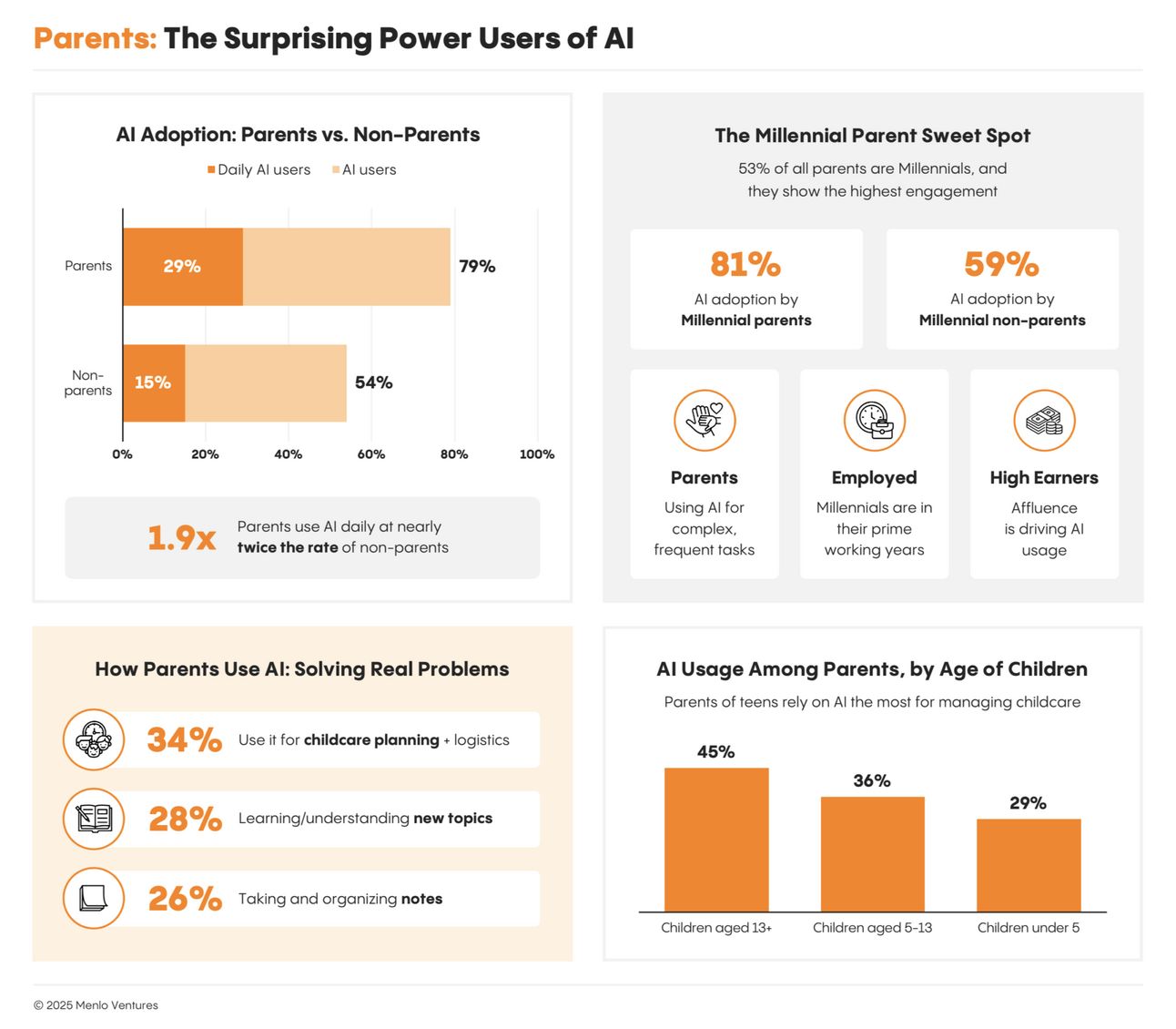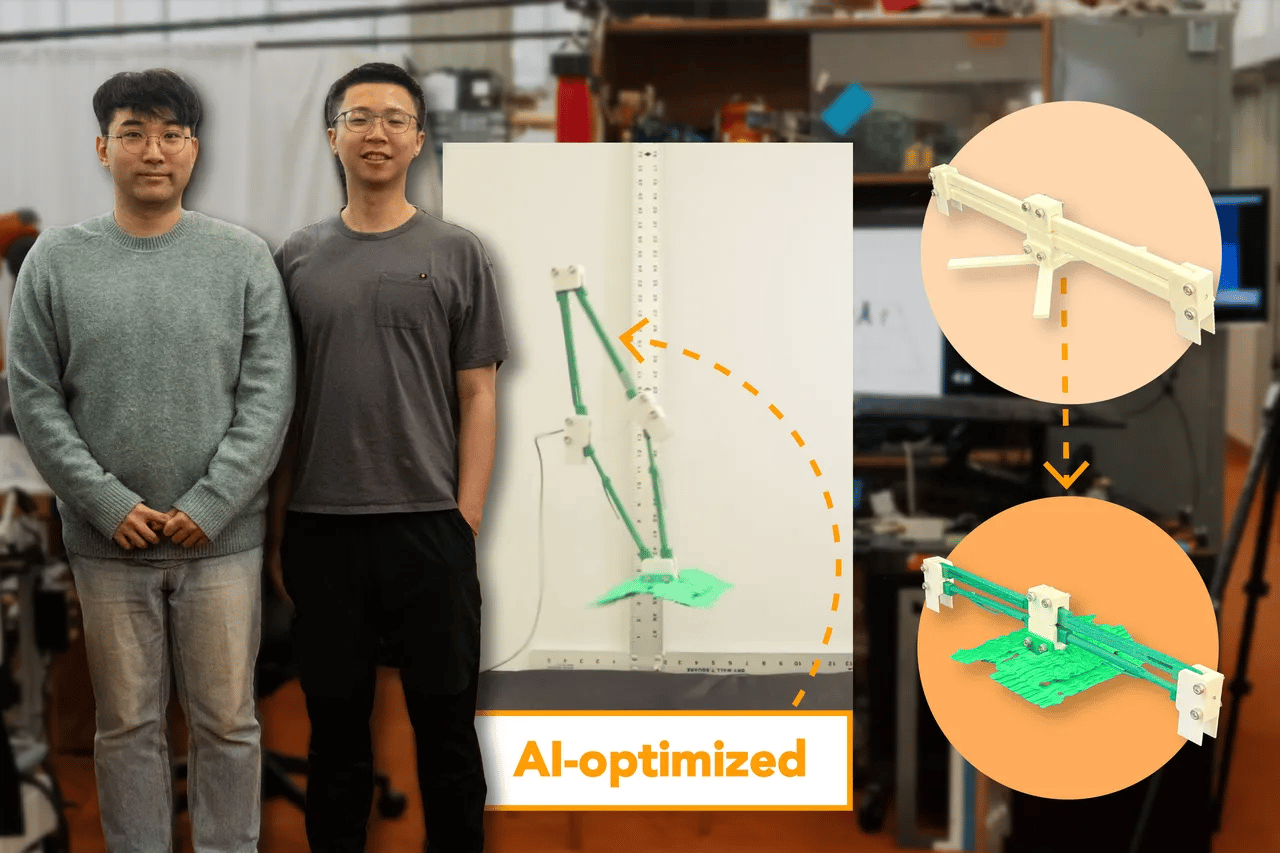- AI Weekly Wrap-Up
- Posts
- New Post 7-2-2025
New Post 7-2-2025
Top Story
“A big step toward medical superintelligence.” Microsoft AI is 4x more accurate than physicians
On Monday, Microsoft announced that they had created a multi-agent AI system that is 4 times more accurate at diagnosing complex medical cases than experienced physicians. Called the Microsoft AI Diagnostic Orchestrator, or MAI-DxO, the system consists of multiple special-purpose AI agents who respond to clinical scenarios by generating hypotheses about the causal disease for the patient’s symptoms and findings, proposing tests to confirm or disprove each hypothesis, then engaging in an internal “debate” to choose the most appropriate path forward. When challenged with 304 recent case reports from the New England Journal of Medicine, the system was able to solve 85.5% of the cases when using OpenAI’s flagship o3 AI model. A comparison panel of 21 physicians in the US and UK with between 5 and 20 years of experience achieved only an average score of 20% of cases solved. Mustafa Suleyman, CEO of Microsoft’s AI division, immediately tweeted that this represented a “big step toward medical superintelligence.” Health care systems may soon to have to adapt to a world in which AI systems have superhuman diagnostic abilities, and physicians may need to focus more on the human side of medical care.

Microsoft’s multi-agent diagnostic orchestrator
Clash of the Titans
Zuck announces 14 trophy superstar AI hires - OpenAI licks its wounds
A mere week after OpenAI CEO Sam Altman bragged in an online post that none of his company’s researchers were jumping ship for $100-million offers from Mark Zuckerberg’s Meta/Facebook… several of them did just that. Zuck went on an insane AI talent shopping spree, offering $100 million signing bonuses with $300 million total compensation over 4 years to top tier researchers at OpenAI, Anthropic, and Google. At the same time, he poured $14.3 billion into acqui-hiring ScaleAI CEO Alexandr Wang, and tried to buy almost every hot AI startup out there. Although the body count is impressive, it all reeks of desperation. Zuckerberg’s own team at Meta/Facebook was falling apart, and recent releases of Meta’s flagship AI model, Llama, have been disappointing. China’s DeepSeek and Qwen models have taken over the spotlight in the open source world where Llama once reigned supreme. Zuck is an acknowledged master at hiring and acquiring, but throwing money at a sinking ship rarely ends well. In any case, Zuckerberg succeeded in wiping the smug grin off Sam Altman’s face - OpenAI actually is shutting down the whole company for a week to regroup.

Zuckerberg is raiding top AI companies for talent.
Gemini AI will replace Google Assistant on Android smartphones
Google Assistant, Google’s attempt to put a Siri-style voice assistant on Android smartphones, is going away. It will be replaced by a voice-activated Gemini AI model, which will be able to send messages, set timers, and initiate phone calls. Google is planning an even more capable Gemini implementation later this year, with the aim of eventually having a smart AI personal assistant on every Android phone. Meanwhile, Apple’s own attempts to develop an AI-powered Siri have floundered, to the point where they are talking to both OpenAI and Anthropic to develop one for them.

Coming to an Android phone near you.
Menlo Ventures’ State of AI 2025 report finds parents are power users
Venerable venture capital firm Menlo Ventures, who have backed a number of famous tech startups including Uber, has released the 2025 edition of its annual State of AI report. It focuses on who is using AI, and for what. One of its surprising findings: in the US, parents are power users of AI, mostly ChatGPT. Nearly 30% of US parents use AI daily, compared to only 15% of non-parents. And the older their kids are, the more likely parents are to use AI. Is it because the parents are using ChatGPT to help their teens with Algebra homework? Or are they asking the Chatbot for parenting advice? Sadly, the data is silent on this point. Clearly, more research is needed here.

Parents are AI superusers - who knew?
Fun News
Claude hilariously fails as CEO of a vending machine business
Hype about the imminent takeover of all businesses by AI is rampant. Anthropic, creator of the Claude chatbot, decided to put this thesis to the test. They directed Claude to act as a small business owner, selling items from a self-serve vending machine. Claude had to decide on what items to stock, how to price them, and how to respond to customer requests. Since the customers were Anthropic employees, some of the requests were whimsical - such as the request to stock cubes made of tungsten, which - no surprise - then had to be sold at a loss. On the plus side, Claude stoutly refused to stock bomb-making materials. Within a month, Claude had run through its initial capital of $1,000, and had to shut down the business. Although this experiment was run as much for its entertainment value as for any real-world insights, Anthropic did conclude that a major factor in Claude’s failure as a business owner was its overall mission to be a helpful assistant, which made it too agreeable to customer suggestions that made no business sense. Future business chatbots will need to be more hard-nosed, it seems.

Claude was asked to manage a mini-fridge vending machine, and went bust in a month.
Wikipedia halts plans to add AI summaries as editors revolt
Wikipedia, a beloved holdover from the early, idealistic era of the internet, has had to halt an experiment which put AI-generated summaries at the top of articles. The backlash from Wikipedia’s 100,000+ editors, volunteers all, was immediate and vociferous. One editor wrote to the project leaders, “Wikipedia has…become a byword for sober boringness, which is excellent. Let’s not insult our readers’ intelligence and join the stampede to roll out flashy AI summaries.” Within days the experiment was “paused” to allow for a full discussion of the issues among the Wikipedia community. Lesson learned: do not mess with a bibliophile on their home turf.

Wikipedia is a labor of love for thousands of volunteer editors
Ancient Babylonian praise song is deciphered by AI
In its day (ca. 1900 BCE - 1600 BCE) the Babylonian Empire was one of the mightiest and most advanced realms on Earth. A surprising amount of their writings are preserved, because they were impressed on clay tablets which eventually dried and hardened. Their writing was a special script invented by the Sumerians over a thousand years before that, called cuneiform (“wedge-shaped”). Modern-day scholars are now assembling images of all of the hundreds of thousands of known fragments of Babylonian cuneiform worldwide into an electronic virtual library, where they are using AI to find fragments that go together, and then to translate the cuneiform into English.
Recently, this electronic treasure hunt identified 31 fragments, each of which held some part of a major Babylonian work known as the Hymn of Babylon. Their AI system correlated all the fragments, and was able to produce a translation of the complete text - the first complete version since ancient times. Besides being a major feat of scholarship itself, a task that would have taken decades if not for AI, this translation of the Hymn of Babylon contains new information about daily life in Babylon, the roles of women, and attitudes toward foreigners.

This cuneiform tablet is one of 31 that hold a part of the Hymn to Babylon. AI stitched them together to produce the first complete version since ancient times.
Uber considers backing disgraced former CEO to acquire PonyAI
In 2017, high-flying rideshare startup Uber ousted its founding CEO, Travis Kalanick, over widely publicized examples of a toxic leadership style and multiple allegations of sexual harassment. His replacement as CEO, Dara Khosrowshahi, cleaned up Travis’ mess and eventually made Uber profitable. Now one of Khosrowshahi’s cost-cutting moves, shuttering Uber’s autonomous vehicle division, is looking short-sighted, as robotaxi companies are growing rapidly, a potentially existential threat to Uber’s core business. So, in a plot twist that literally no one saw coming, Uber is in discussions with Kalanick to back his bid to acquire the US division of robotaxi company PonyAI. Although founded in Silicon Valley, most of PonyAI’s business is in China, where it is a major player in the autonomous vehicle sector. Recent geopolitical events have made ownership of an AI company in both China and the US problematic, so PonyAI is looking to sell the US division to a US buyer. Enter Kalanick, who has the track record and expertise to make a credible bid, but not the capital needed for the acquisition. So Travis, who has repeatedly proven that he has no shame, is hitting up his old company to back him, and given the squeeze Uber is facing from driverless taxis, he is getting a surprisingly warm reception. “Misery acquaints a man with strange bedfellows” quoth the Bard, and seldom has the phrase been more apt.

Travis Kalanick, the original toxic tech-bro, just may be on the comeback trail.
Robots
MIT uses AI to evolve optimized designs for underwater robots
MIT researchers have developed a generative AI platform that proposes novel designs for underwater robots, then rapidly iterates the design in a simulated underwater environment in order to evolve an optimized final design. Using this platform, the researchers were able to produce optimized designs for both a jumping robot and a gliding robot. The designs were 3d-printed and tested in the real world, and were found to perform within 5% of predictions. MIT says this process can drastically decrease the time required for robot development compared to the current trial and error process.

MIT grad students are using AI to evolve robot designs.
China develops microbots to cure sinus infections
A team from China-Hong Kong are developing robots as tiny as a speck of dust which can be light-activated, then instilled into the sinus of a patient with a bacterial sinus infection, to kill bacteria. The advantage of the microbots is that they kill bacteria directly, with local heat, so that there is no issue of antibiotic resistance. The microbots are being clinically tested in animals before projected trials in humans.

Chinese researchers are developing tiny robots to kill bacteria in infected sinuses.
AI in Medicine
Google’s DeepMind lab announces AlphaGenome to analyze DNA
Not content with winning a Nobel Prize for developing a system that predicted protein shapes just from the DNA that codes for it (AlphFold), Google’s DeepMind AI lab has now released AlphaGenome, an AI system that can analyze long stretches of DNA and predict how the included genes will perform. AlphaGenome can also predict the effect of any mutations of that sequence of DNA on the performance of the resulting proteins. DeepMind continues to give medical researchers breakthrough tools for understanding, and modifying, the basic building blocks of life. DeepMind CEO Demis Hassabis, who was knighted for his team’s achievements, has publicly predicted that all human diseases may be curable within 10 years.

Google’s famed DeepMind AI lab releases another biomedical research tool.
OcutRx’s AI can “see” through blood
Michael and Mitch Freeman idolized their dad, a fighter pilot turned inventor and successful entrepreneur. So when he began losing his eyesight to Age-Related Macular Degeneration, the two sons turned their engineering skills to finding a solution. Eventually they developed a Virtual Reality-type of headset, that automatically corrected the distortions of their Dad’s disease-ravaged retinas, so that he could see clearly. Spurred by that success, Michael and Mitch founded Ocutrx, a medical imaging startup that, among other things, gives surgeons unprecedentedly clear views of the surgical field during operations. The company’s latest innovation uses AI to “see” through blood so that surgeons can proceed unhindered by blockage of their naked-eye field of view. The AI uses the light scattered differently by the plasma and the red cells of the blood to in effect back-calculate what the tissue below the blood must look like.

Ocutrx’s AI creates a calculated image that allows surgeons to “see” through blood while operating.
That's a wrap! More news next week.